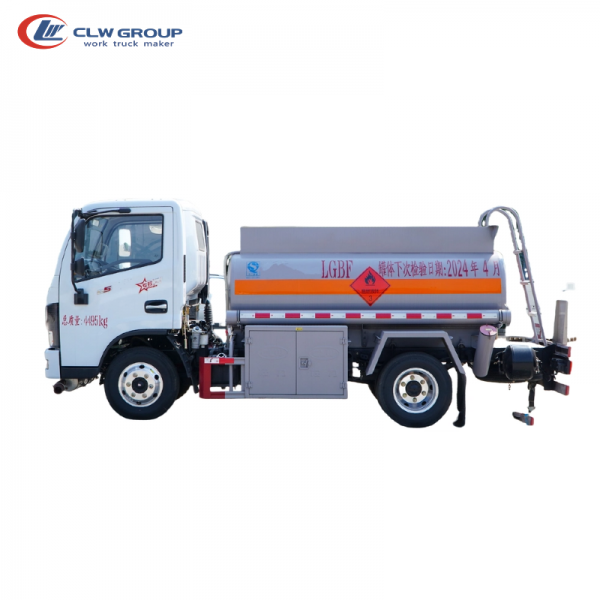Introduction:
Crane trucks are essential equipment in various industries such as construction, shipping, and logistics. These powerful vehicles play a crucial role in lifting and transporting heavy loads, making them an integral part of many operations. However, like any mechanical equipment, crane trucks require regular maintenance to ensure their optimal performance, longevity, and, most importantly, the safety of both operators and surrounding personnel. In this article, we will discuss the importance of a comprehensive crane truck maintenance schedule, the key components to include in such a schedule, and the benefits of adhering to a preventive maintenance routine.
I. Understanding the Importance of a Crane Truck Maintenance Schedule
1. Enhancing Safety:
Safety is paramount when operating crane trucks. These vehicles often handle heavy loads, and any malfunction or breakdown could lead to disastrous consequences. By implementing a well-structured maintenance schedule, potential issues can be identified and rectified before they escalate into serious accidents.
2. Extending Lifespan:
Crane trucks are significant investments, and maximizing their lifespan is crucial for minimizing costs and improving profitability. Regular maintenance helps identify and address wear and tear, preventing minor issues from transforming into major problems that could shorten the vehicle's lifespan.
3. Ensuring Efficiency:
Efficiency is vital in any industry, and crane trucks are no exception. A well-maintained vehicle operates at optimal performance, ensuring smooth operations, reducing downtime, and increasing productivity.
II. Key Components of a Crane Truck Maintenance Schedule
1. Inspection and Lubrication:
Regular inspections help identify potential issues with the crane truck's mechanical components, electrical systems, hydraulic systems, and structural integrity. Lubrication of moving parts is essential to prevent premature wear and ensure smooth operation.
2. Fluid Checks and Replacements:
Fluids play a critical role in the proper functioning of a crane truck. Regular checks and replacements of engine oil, hydraulic fluid, coolant, and other fluids are necessary to maintain optimal performance and prevent component damage.
3. Electrical System Maintenance:
The electrical system of a crane truck is responsible for operating various functions, including lights, indicators, alarms, and the crane itself. Regular checks, cleaning, and repairs of wiring, connectors, switches, and batteries are essential to avoid electrical failures and ensure safe and efficient operation.
4. Brake and Tire Maintenance:
Brakes are crucial for the safe operation of any vehicle, and crane trucks are no exception. Regular inspection, adjustment, and replacement of brake components, along with tire inspections and rotations, are essential for maintaining optimal stopping power and overall vehicle stability.
5. Best work trucks for hauling heavy equipment :
The structural integrity of a crane truck is vital to ensure both operational safety and load-bearing capacity. Regular inspections should focus on areas prone to stress, such as the boom, outriggers, and chassis, to identify any signs of fatigue, cracks, or corrosion.
6. Certification and Load Testing:
Crane trucks often require certifications and load tests to comply with industry regulations. A maintenance schedule should include timely inspections and load tests to ensure the vehicle remains compliant and safe to operate.
III. Benefits of Adhering to a Preventive Maintenance Routine
1. Cost Reduction:

Preventive maintenance helps detect and address issues before they lead to costly breakdowns or accidents. By investing in regular maintenance, businesses can avoid expensive repairs, downtime, and potential legal liabilities.
2. Increased Reliability:
By following a maintenance schedule, operators can rely on their crane trucks to perform optimally, reducing the risk of unexpected failures and ensuring consistent productivity.
3. Compliance with Regulations:
Crane trucks are subject to various safety and environmental regulations. Adhering to a maintenance schedule ensures compliance, reducing the risk of penalties and legal consequences.
4. Improved Resale Value:
A well-maintained crane truck retains its value better than a neglected one. When the time comes to upgrade or sell the vehicle, a comprehensive maintenance history can significantly increase its resale value.
Conclusion:
Implementing a comprehensive crane truck maintenance schedule is essential for ensuring safety, extending the lifespan of the vehicle, and maximizing operational efficiency. Regular inspections, lubrication, fluid checks, electrical system maintenance, brake and tire maintenance, structural integrity checks, and certification and load testing are key components of a successful maintenance routine. By adhering to a preventive maintenance routine, businesses can reduce costs, increase reliability, comply with regulations, and improve the resale value of their crane trucks. Remember, investing in maintenance today is an investment in the safety and success of your operations tomorrow.
